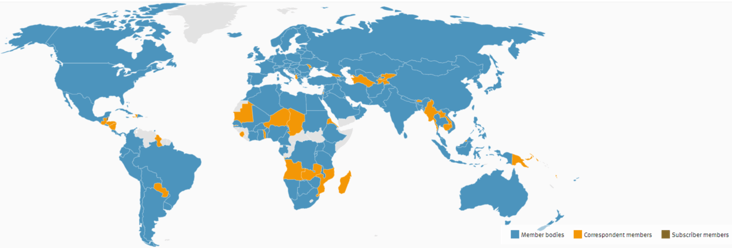Global Standards we can all Agree On.

Business is a global party, connecting countries and people that may have not had much in common. Everyone has standards to decide what is acceptable, but that doesn’t mean that everyone agrees. Thus, the birth of the International Organization for Standardization, or ISO.
ISO is an independent organization based in Geneva, Switzerland and is trusted internationally. They are a global network of national standards, which are applied to the processes of building something, managing something, or supplying a product or service. It is a language that everyone speaks, and it is assurance of how a business is run. There will always be a time when a company needs to pick another company to work with. If a company is ISO certified, it is certain they are managing themselves by an agreed set of standards, regardless of anything else.
The name says it all. ISO is all about equity and common understanding. Depending on where a company is based, the language forces a different acronym. On paper, their acronym should be IOS in English or Dutch (Internationale Organisatie voor Standaardisatie) but OIN in French (Organisation internationale de normalisation) and Spanish (Organización Internacional de Normalización) as examples. With this in mind, the founders decided to give the organization the short form of ISO, derived from “isos” – Greek for equal.
What is a Standard?
Standards are tried-and-true ways of doing something, as agreed on by a group of experts in the field they represent. These fields include different areas of operations like purchasing, manufacturing and support as well as customers, sales, trade associations, etc.
ISO members consist of the premier standards organizations within their countries and only one member per country can join. Each member acts as that country’s representation and together they decide which way of working is best for everyone.
 source: https://www.iso.org/members.html
source: https://www.iso.org/members.html
ISO standards cover a huge range of activities and apply to every industry, though the standard sets are very specific. ISO has developed over 24,000 international standards and are grouped together for different purposes. Some examples include:
-
- Quality management: make the workplace more efficient and produce better product quality/yield as a result.
- Environmental management: reduce negative environmental consequences including waste and is overall more sustainable.
- Health and safety: create a safer environment for employees.
- Energy management: reduce energy consumption.
- Food safety: prevent the spread of food contamination.
- IT security: maximize privacy and data protection.
What does ISO Certification Bring to the Table?
Through standardization, different industries can speak to one another, in a way everyone understands. Methodologies become clearer from one mindset to the next which simplifies production all around.
Implementing proven processes that promote efficiency and better ways of working, forces companies to look at how they have been running their business. By taking a step back it is simple improvements become obvious. It is easy to double up on unnecessary tasks or exclude some major validations because that’s how it was always done. ISO is designed to catch bad habits and fix them.
As internal processes improve, goals become easier to both achieve and track. By eliminating busy work and replacing inefficiencies with expert guidelines, less time is wasted. All this new freedom can be spent on the product itself. When the focus is on the product, quality always improves, and costs decrease. It is the one time where it is actually about the destination…not the journey.
Waste is a result of poor quality and inefficiency, and it represents money lost. This is the result of variation and inconsistent processes. By reducing variation and increasing consistency you get less waste and more money.
Overall, these factors give consumers and partners confidence in a brand. They walk in knowing that this is a company that is organized and focused on what matters. They don’t have to come from the same place, but they already know the direction they are headed.
Quality always matters.
To discuss your next test or quality project, please contact Averna.
You may also be interested in…
 If you are talking about quality, we are always listening. Find out how quality can improve by outsourcing test to the right partner!
If you are talking about quality, we are always listening. Find out how quality can improve by outsourcing test to the right partner!
Get in touch with our experts or navigate through our resource center.